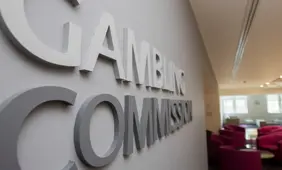Meta Shuts Down Illegal iGaming Influencers in the Philippines
Meta has removed the pages of at least 20 Filipino social media influencers for promoting illegal online gambling platforms to audiences in the Philippines. The action was taken following formal requests submitted by the Philippine Cybercrime Investigation and Coordinating Center and Digital Pinoys, a local advocacy group that monitors digital activity for public interest.

The move marks a significant crackdown on the growing presence of unlicensed online gambling operations in the country, which have increasingly relied on influencer marketing to attract participants. Digital Pinoys has been actively tracking and reporting influencers who endorse illegal iGaming operations through sponsored content and promotional videos.
Related: Philippines Influencers are 'Part of a Conspiracy to Promote Illegal Gambling'The group stated that Meta's removal of the accounts was a timely and effective response to its appeal for action. According to Digital Pinoys, these influencers were blatantly violating Philippine laws by advertising and normalizing gambling content that operates outside the country's regulatory framework. The organization has expressed optimism that additional flagged accounts will be taken down soon as part of the broader effort to stem illegal gambling promotions online.
The list of sanctioned influencers includes several prominent figures with large followings, including Boy Tapang, with 5.5 million followers; actor Mark Anthony Fernandez, who had more than 240,000 followers; and Sachzna Laparan, with 9.7 million followers. The prominence of these individuals raised concerns about the influence they wield over young and impressionable audiences, particularly in a market where online gambling continues to expand rapidly.
Sen. Joel Villanueva, a staunch opponent of iGaming, welcomed Meta's intervention, calling it a notable advancement in efforts to eliminate online gambling in the country. Villanueva is the author of Senate Bill No. 47, known as the Anti-Online Gambling Act, which aims to implement a nationwide ban on all forms of internet-based gambling. His legislative efforts align with broader concerns about the social and economic harms linked to gambling addiction and related crimes.
Religious groups have echoed similar calls for a complete ban. Pablo Virgilio Cardinal David, who leads the Catholic Bishops Conference of the Philippines, criticized the lack of public and institutional resistance to the spread of iGaming. He pointed to widespread silence among government, media, and business entities, attributing it to the financial incentives associated with the gambling industry.
He further emphasized the societal costs of gambling, including the burden it places on families and communities, and questioned the absence of collective action to address these challenges.
More Business News
iGaming Growth in the Philippines Continues
Despite efforts to curb illegal gambling, iGaming in the Philippines continues to thrive, both legally and illicitly. In 2024, legal online gambling generated PHP154.51 billion (US$2.71 billion) in gross gaming revenue, reflecting a 165% increase compared to the previous year. Meanwhile, illegal operators remain active.
The Philippine Amusement and Gaming Corporation (PAGCOR) reported blocking 5,793 unauthorized websites and mobile applications last July alone. That same month, President Ferdinand Marcos Jr ordered the closure of all Philippine Offshore Gaming Operations, citing their links to serious criminal activities such as human trafficking and money laundering.
While opposition to iGaming is growing, public sentiment appears to be more nuanced. A recent survey conducted by research firm The Fourth Wall, involving 1,000 Filipino online gamblers, found that a majority of respondents favor enhanced regulation over a total prohibition.
Most described themselves as casual players who participate in low-stakes games and exercise self-restraint. They viewed online gambling as a recreational and social activity, prioritizing safety, transparency, and legitimacy. Respondents expressed concern that an outright ban might push users toward riskier, unregulated platforms.
The survey also revealed that 36% of participants considered themselves break-even gamblers, meaning they neither win nor lose significantly and engage in gambling as a moderate leisure activity. Around 85% claimed they do not borrow money to fund their gambling, while 12% admitted to being high-frequency players who sometimes rely on risky borrowing, raising concerns about financial instability among a segment of users.
When asked about their initial motivations for trying online gambling, many cited curiosity, boredom, and peer influence as key factors.
RELATED TOPICS: Business
Most Read
BETBY Launches Always-On Virtual American Football and Expanded Bet Builder Markets
Feb 04, 2026Must Read
 Interviews
Interviews
Exclusive Interview: Levon Nikoghosyan Shares AffPapa Winning Formula for Successful iGaming Events
Dec 03, 2025 Interviews
Interviews








Review this New Post
Leave a Comment
User Comments
Comments for Meta Shuts Down Illegal iGaming Influencers in the Philippines